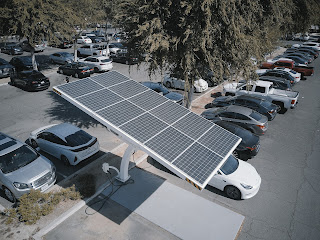Limited Charging Infrastructure
One of the primary challenges faced by the electric vehicle industry in India is the inadequate charging infrastructure. Unlike traditional fuel stations, charging stations for EVs are still sparse, particularly in smaller towns and rural areas. Without a widespread network of charging points, potential buyers are hesitant to make the switch, fearing they might run out of power during their journeys.
High Initial Costs
While the operational costs of electric vehicles are lower than their petrol or diesel counterparts, the initial investment required to purchase an EV remains significantly high. This financial barrier deters many price-sensitive Indian consumers from opting for electric vehicles, even though they might save money in the long run.
Limited Vehicle Options
Although the variety of electric vehicles available in the Indian market has increased in recent years, the options are still limited compared to traditional cars. There is a scarcity of electric models in different segments, including budget-friendly and luxury categories. More diverse options that cater to different consumer needs and preferences could significantly boost EV adoption rates.
Battery Technology and Range Anxiety
Battery technology is at the heart of electric vehicles, and advancements in this field are crucial for the widespread adoption of EVs. Currently, concerns about the limited driving range and the need for frequent recharging contribute to what is commonly known as "range anxiety." Until EVs can match or exceed the range offered by conventional vehicles on a single charge, potential buyers remain skeptical.
Policy and Regulatory Challenges
Inconsistent government policies and regulations related to electric vehicles pose a significant challenge. Clear and stable policies are necessary to incentivize both consumers and manufacturers. Additionally, there is a need for standardized regulations concerning charging infrastructure, vehicle specifications, and safety standards, providing a level playing field for all stakeholders.
Lack of Public Awareness
Public awareness about electric vehicles, their benefits, and the government incentives available is relatively low in India. Educating consumers about the environmental advantages, reduced maintenance costs, and long-term savings associated with EVs can significantly influence their purchasing decisions.
Conclusion
The journey toward a greener and sustainable future through widespread electric vehicle adoption in India is riddled with challenges. Addressing these obstacles requires collaborative efforts from the government, private sector, and society as a whole. By investing in charging infrastructure, offering financial incentives, promoting research and development in battery technology, and raising public awareness, India can overcome these hurdles and accelerate the transition to a cleaner and more efficient transportation system.
As consumers become more informed, and as technology continues to advance, the electric vehicle market in India can transform from a challenging landscape into a thriving ecosystem, contributing significantly to the country's vision of a sustainable tomorrow.

No comments:
Post a Comment